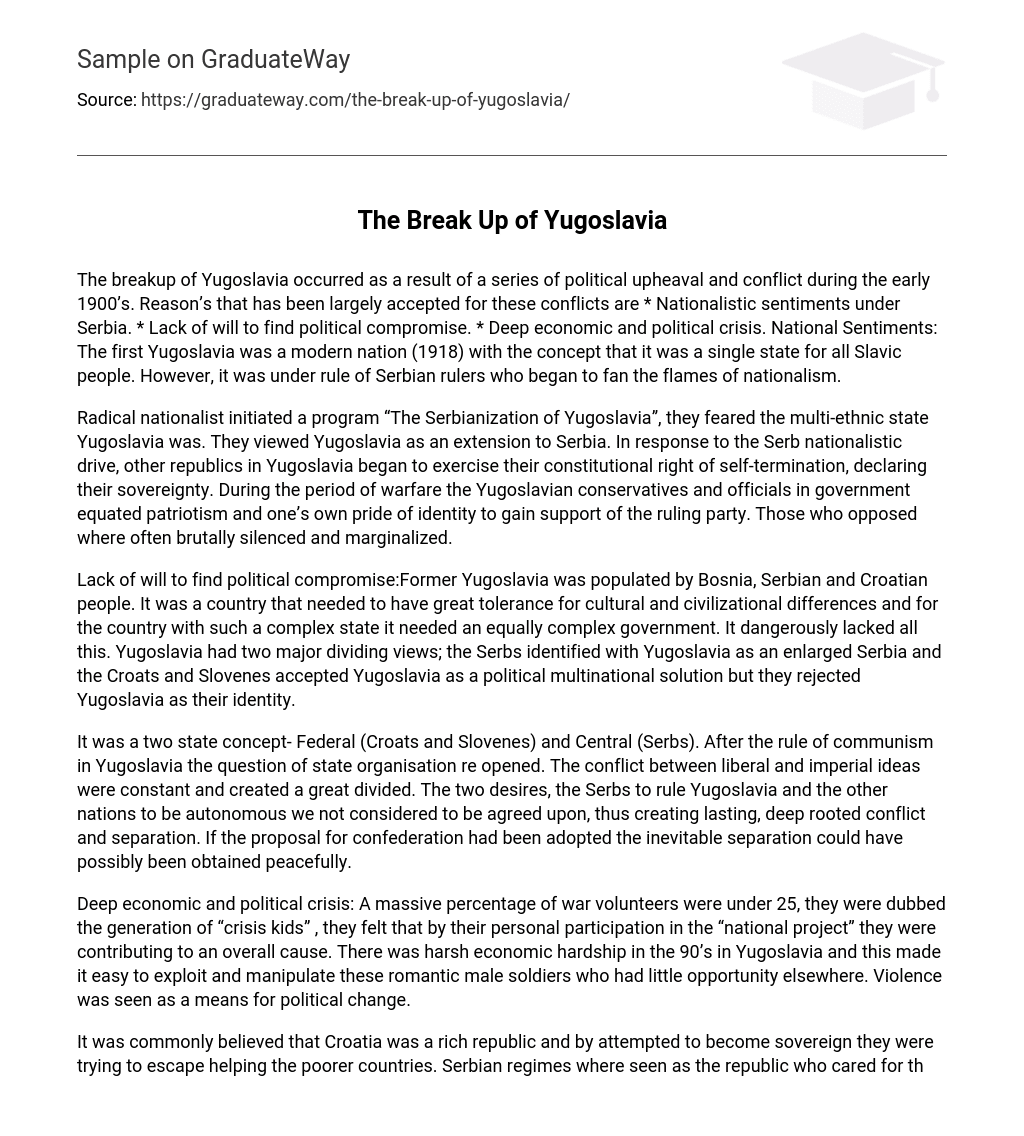The dissolution of Yugoslavia in the early 1900s resulted from a succession of political turmoil and conflict. These conflicts can be primarily attributed to nationalistic sentiments in Serbia, the absence of a desire to reach political compromises, and a profound economic and political crisis. The initial Yugoslavia, established in 1918, aimed to be a unified nation for all Slavic people. Yet, it was controlled by Serbian leaders who actively fueled nationalism.
A program called “The Serbianization of Yugoslavia” was initiated by radical nationalists who were concerned about the multi-ethnic nature of Yugoslavia. They saw Yugoslavia as merely an extension of Serbia. As a result of the Serb nationalist movement, other republics within Yugoslavia started asserting their constitutional right to self-determination and declaring their sovereignty. Throughout the conflict, conservative figures and government officials in Yugoslavia associated patriotism and pride in one’s own identity with support for the ruling party. Those who voiced opposition were frequently subjected to brutal suppression and marginalization.
The lack of political compromise in former Yugoslavia was evident through its diverse population of Bosnian, Serbian, and Croatian people. The country required a high level of tolerance for cultural and civilizational differences, posing a need for a complex government structure. However, it dangerously lacked these qualities. The Serbs viewed Yugoslavia as an expanded Serbia, while the Croats and Slovenes saw it as a political solution but did not identify with it as their own identity.
The concept of Yugoslavia consisted of two states: Federal (Croats and Slovenes) and Central (Serbs). After the communist rule in Yugoslavia, the issue of state organization resurfaced, causing constant conflict between liberal and imperial ideas and resulting in deep-rooted divisions. The desires of the Serbs to dominate Yugoslavia and of other nations to have autonomy were not reconciled, leading to ongoing conflict and separation. Had the proposal for a confederation been accepted, the possibility of achieving separation peacefully could have been realized.
During the deep economic and political crisis in Yugoslavia, a significant number of war volunteers, often referred to as the “crisis kids” generation, were under the age of 25. These young individuals believed that by actively participating in the “national project,” they were making a substantial contribution to a greater cause. The severe economic difficulties faced during the 90s in Yugoslavia made it simple to exploit and manipulate these idealistic male soldiers who had limited prospects elsewhere. Violence was seen as a viable method for instigating political transformation.
It was a widespread belief that Croatia, by seeking independence, was trying to avoid assisting poorer countries and was perceived as a wealthy republic. The Serbian regimes, on the other hand, were viewed as caring for the impoverished state during this time. The collapse of Yugoslavia was also influenced by conservative Yugoslavians who acted as actors, using their control over military and information resources to create images of danger and engage in violent warfare against ethnically diverse communities. The army, which was primarily composed of Serbs, was intended for internal defense against external threats. Thus, Yugoslavia experienced internal deterioration.





